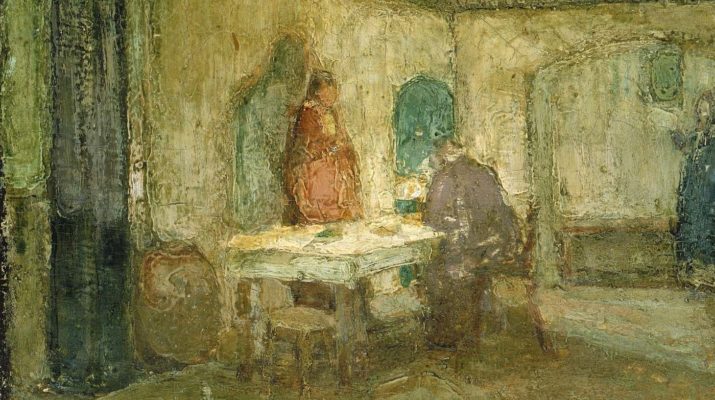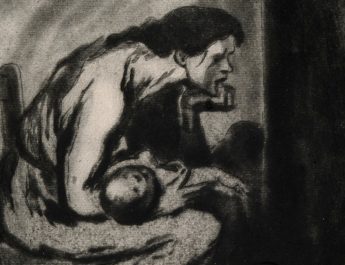Luke 24:30-32
NL 212
30 AWhen he was at the tableB with them, he tookC bread,D
A {untranslated} = ginomai. This is to come into being, to happen, become, be born. It can be to emerge from one state or condition to another or is coming into being with the sense of movement or growth.
B “was at the table” = kataklino. 5x in NT– all of them refer to reclining to eat. From kata (down, against, throughout, over among) + klino (to slant, rest, recline, approach an end, wear; to bend in a literal or figurative sense – to lay down, a day ending, causing an opposing army to flee). This is to sit down or recline, especially to eat whether at a table or on the ground.
C “took” = lambano. It does not refer to passive receiving of something, but active acceptance or taking of something whether it is offered or simply nearby. It focuses on individual decision and action.
D “bread” = artos. Perhaps from airo (raise, take up, lift, remove). This is bread or a loaf. It is a loaf as raised.
blessedE and brokeF it, and gaveG it to them.
E “blessed” = eulogeo. From eu (good, well, well done, rightly) + logos (word, statement, speech, analogy; a word that carries an idea or expresses a thought, a saying; a person with a message or reasoning laid out in words; by implication, a topic, line of reasoning, or a motive; can be used for a divine utterance or as Word – Christ); {from lego (to speak, tell, mention)}. Properly, this is speaking well of – speaking so that the other is benefited. It can mean praise, bless, thank, or call for a blessing. This is where “eulogy” comes from.
F “broke” = klao. 14x in NT. This is to break, to break in pieces as one breaks bread.
G “gave” = epididomi. 9x in NT. From epi (on, upon, against, what is fitting) + didomi (give, offer, place, bestow, deliver; give in a literal or figurative sense). This is to deliver, give over, give up, surrender.
31 Then their eyesH were opened,I and they recognizedJ him, and he vanished from their sight.K
H “eyes” = ophthalmos. From optanomai (to appear, be seen by); from horao (become, seem, appear). This is eye or sight. It is used figuratively for the mind’s eye, a vision, or for envy.
I “opened” = dianoigo. 8x in NT. From dia (through, because of, across, thoroughly) + anoigo (to open or open up in a literal or figurative sense; to speak freely); {from ana (up, back, again, among, between, anew) + oigo (to open)}. This is to open fully. It can mean to open the womb as a firstborn does or figuratively to explain or expound.
J “recognized” = epiginosko. From epi (on, upon, what is fitting) + ginosko (to know, recognize, realize, perceive, learn; gaining knowledge through personal experience). This is to perceive, discern, acknowledge, recognize, know exactly because of direct interaction.
K “vanished from…sight” = aphantos + ginomai. Aphantos is 1x in NT. From a (not, without) + phaino (to bring light, cause to appear, shine, become visible or clear). Literally, not appearing, so this is invisible, hidden, or vanished. Ginomai is the same as {untranslated} in v30. See note A above.
32 They saidL to each other, “WereM not our heartsN burningO within us while he was talkingP to us on the road,Q while he was opening the scripturesR to us?”
L “said” = eiron. This is to speak say, answer, command.
M “were” = eimi. This is to be, exist.
N “hearts” = kardia. Literally the heart, but figuratively mind, character, inner self, will, intention, thoughts, feelings. Also, the center of something. The word heart is only used figuratively in the Old and New Testaments. This is where “cardiac” comes from.
O “burning” = kaio. 11x in NT. This is to kindle, light, blaze. It is light in a literal or figurative sense.
P “talking” = laleo. From lalos (talkative). This is to talk, say, or preach.
Q “road” = hodos. This is way, road, path, or journey. It can imply progress along a route.
R “scriptures” = graphe. From grapho (to write). This is literally writing, a document. In the New Testament, this is always used for scripture.
Image credit: “And he Disappeared Out of their Sight” by Henry Ossawa Tanner, circa 1898.




